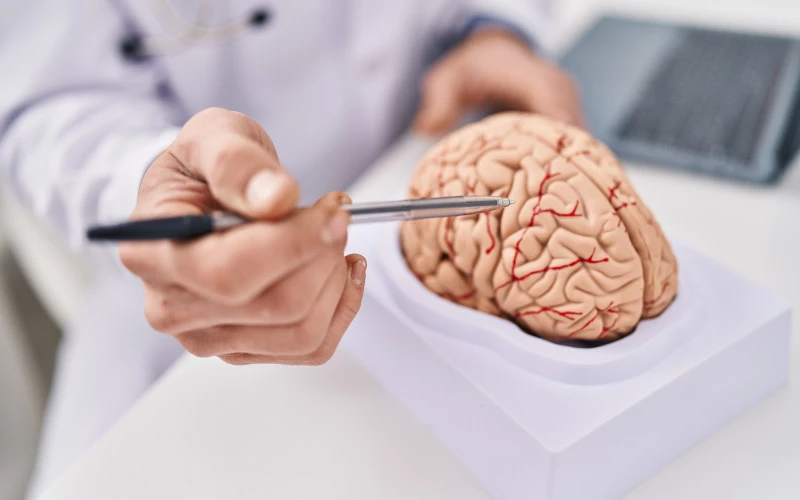Why the Best Psychologist in Delhi Can Change Your Psychological Well-Being
Why the Best Psychologist in Delhi Can Change Your Psychological Well-Being
Blog Article
Psych Therapy: A Comprehensive Overview to Outcomes and techniques

Cognitive-Behavioral Treatment
Cognitive-Behavioral Therapy (CBT) is a widely made use of psychotherapeutic method that concentrates on identifying and changing dysfunctional thinking and actions patterns. Developed in the 1960s by Aaron T. Beck, CBT integrates cognitive and behavioral theories to deal with numerous mental health and wellness concerns, including anxiety, anxiousness, and stress-related disorders.
CBT is defined by its organized, ambitious nature. Therapy generally includes a collective process between the therapist and client, where particular issues are determined, and functional methods are created to resolve them. Methods such as cognitive restructuring, exposure therapy, and skill-building exercises are commonly employed. Cognitive restructuring entails tough and modifying adverse idea patterns, while exposure therapy aims to decrease worry and anxiety through progressive exposure to been afraid circumstances or things.
Evidence-based study supports the efficiency of CBT for a large range of psychological problems - Best Psychologist in Delhi. Its emphasis on ability acquisition and self-help strategies equips customers to continue progression separately after therapy ends. The versatility and effectiveness of CBT have actually made it a cornerstone in modern psychotherapeutic practice
Psychodynamic Strategies
Rooted in the early concepts of Sigmund Freud, psychodynamic methods concentrate on checking out the subconscious mind and its influence on habits and feelings. These techniques intend to uncover concealed thoughts and feelings that might be driving maladaptive behaviors and emotional distress. Central to this approach is the principle of internal conflict, frequently coming from unresolved previous experiences, particularly those from youth.
Therapists utilizing psychodynamic strategies utilize several essential methods, consisting of free association, where patients are motivated to talk freely to expose unconscious product, and desire analysis, which translates the hidden web content of desires. Additionally, the expedition of transfer and countertransference dynamics within the therapeutic connection is crucial. These communications can give insights into the person's internal world and relational patterns.
Psychodynamic treatment is commonly longer-term compared to other techniques, supplying a thorough and deep understanding of the person's subconscious. Research suggests that it can be specifically reliable for complex mental wellness concerns, such as individuality problems and chronic depression. By promoting self-awareness and psychological understanding, psychodynamic therapy looks for to bring subconscious material to consciousness, making it possible for people to attain purposeful and lasting adjustment in their lives.
Humanistic Strategies
Building on the structures laid by psychodynamic methods, humanistic methods offer an unique perspective concentrated on specific potential and self-actualization. Coming from the mid-20th century, these techniques focus on the integral goodness and development possibility of people, stressing a holistic sight of human experience. Secret figures such as Carl Rogers and Abraham Maslow have dramatically affected this therapeutic approach, which includes methods like client-centered treatment and Gestalt treatment.
Client-centered therapy, established by Rogers, plays an essential role in humanistic strategies. It relies upon the specialist giving an atmosphere of genuine positive regard, compassion, and congruence. This fosters a safe room for clients to explore their sensations and experiences without judgment, facilitating self-discovery and individual growth. The specialist's role is more of a facilitator than an authority, encouraging customers to harness their internal resources for healing.
Gestalt therapy, another crucial humanistic technique, highlights present minute understanding and the assimilation of mind and body. By focusing on the "below and now," clients gain greater insight into Learn More their present emotions and actions. Techniques such as role-playing and assisted visualization are frequently employed to assist customers gain a deeper understanding of themselves, inevitably resulting in improved self-awareness and satisfaction.
Integrative Treatments
Integrative therapies represent a synthesis of different healing techniques tailored to satisfy the one-of-a-kind needs of each client. This technique recognizes the intricacy of human psychology and the complex nature of psychological health issues. By combining aspects from different institutions of psychiatric therapy-- such as cognitive-behavioral treatment (CBT), psychodynamic treatment, and humanistic additional resources techniques-- integrative treatments supply an even more holistic and flexible treatment paradigm.
Specialists of integrative therapy evaluate each client's particular requirements, signs, and personal history to develop a customized treatment plan. This individualized approach boosts the possibility for healing success by resolving the source of mental distress and promoting overall health. Strategies may include mindfulness exercises, cognitive restructuring, and emotional handling, each chosen to target different aspects of the customer's problems.
Furthermore, integrative therapies emphasize the therapeutic partnership, viewing the client-therapist bond as a vital component of reliable therapy. This relationship cultivates a helpful environment where customers feel secure to check out and address their problems. The versatility of integrative treatments makes them appropriate for a broad series of conditions, consisting of stress and anxiety, depression, trauma, and social problems, thereby boosting their applicability and effectiveness in varied clinical setups.

Gauging Therapy End Results
Examining the effectiveness of psychiatric therapy is vital for both medical professionals and clients to make sure that the therapy is producing the desired end results. To achieve this, numerous methods and devices are used to determine treatment outcomes methodically. Standardized evaluation tools, such as the Beck Depression Stock (BDI) and the Generalized Anxiety Condition 7 (GAD-7), give quantitative data on signs and symptom intensity and adjustments gradually.
In enhancement to standardized tools, qualitative techniques like customer self-reports and clinical interviews supply valuable insights right into the individual experiences and regarded progress of clients. Consistently scheduled examinations, typically at the beginning, axis, and end of treatment, assistance in tracking the trajectory of improvement or identifying areas needing modification.
End result dimension is not restricted to signs and symptom decrease; it also encompasses functional enhancements in every day life, such as much better social connections, boosted job performance, and boosted overall well-being. Modern advancements in digital health have presented mobile applications and on-line systems that assist in real-time tracking and comments, even more fine-tuning the assessment process.
Inevitably, a thorough strategy to gauging treatment results guarantees that therapeutic interventions work, reliable, and tailored to satisfy the individual demands of clients, thereby optimizing the general restorative experience.
Conclusion
Humanistic methods concentrate on personal development and self-actualization, while integrative therapies incorporate multiple techniques for customized treatment strategies. Evaluating treatment results with standardized analyses and qualitative techniques makes certain a detailed understanding of effectiveness, eventually leading customers toward enduring psychological wellness enhancements.
From the structured technique of Cognitive-Behavioral Treatment (CBT) to the deep exploration of the subconscious in psychodynamic therapy, each technique brings special advantages. Its emphasis on ability procurement and self-help techniques empowers clients to continue progression independently after therapy concludes (Best Psychologist in Delhi). Key figures such as Carl blog here Rogers and Abraham Maslow have actually considerably affected this healing approach, which encompasses approaches like client-centered therapy and Gestalt therapy

Report this page